Page 10 • (445 results in 0.062 seconds)
-
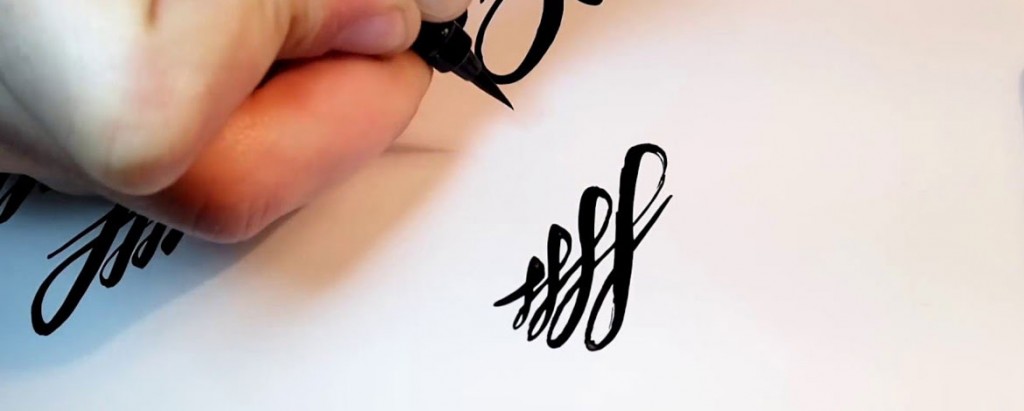
TACOMA, WASH. (Nov. 8, 2016)- Gabri Joy Kirkendall ’09 studied political science and French languages and literature at Pacific Lutheran University. Now, she’s a published author and artist. Below is an edited discussion about her vocational journey and her experience creating hand-lettering books. Question: How…
Q&A: Gabri Joy Kirkendall ’09 discusses her vocational journey that led to success as a hand-lettering artist, author Posted by: Kari Plog / November 8, 2016 November 8, 2016 By Mandi LeCompteContributing writerTACOMA, WASH. (Nov. 8, 2016)- Gabri Joy Kirkendall ’09 studied political science and French languages and literature at Pacific Lutheran University. Now, she's a published author and artist. Below is an edited discussion about her vocational journey and her experience creating hand
-
Angela Tennant ’12 Degree: Bachelors of Fine Art – Theatre, Acting Directing with an English Literature minor Organizations: Alpha Psi Omega (Member and Historian), Vpstart Crow (President), CLAY CROWS Improv (Member), SOAC Advisory Board Where are you now? “I currently reside in New York City. Upon graduation…
Alumni Check-in: Angela Tennant ’12 Posted by: Mandi LeCompte / March 20, 2013 March 20, 2013 Angela Tennant ’12 Degree: Bachelors of Fine Art – Theatre, Acting Directing with an English Literature minor Organizations: Alpha Psi Omega (Member and Historian), Vpstart Crow (President), CLAY CROWS Improv (Member), SOAC Advisory Board Where are you now? “I currently reside in New York City. Upon graduation at PLU, I was accepted into the MFA Acting program at The New School for Drama, and I’m in
-
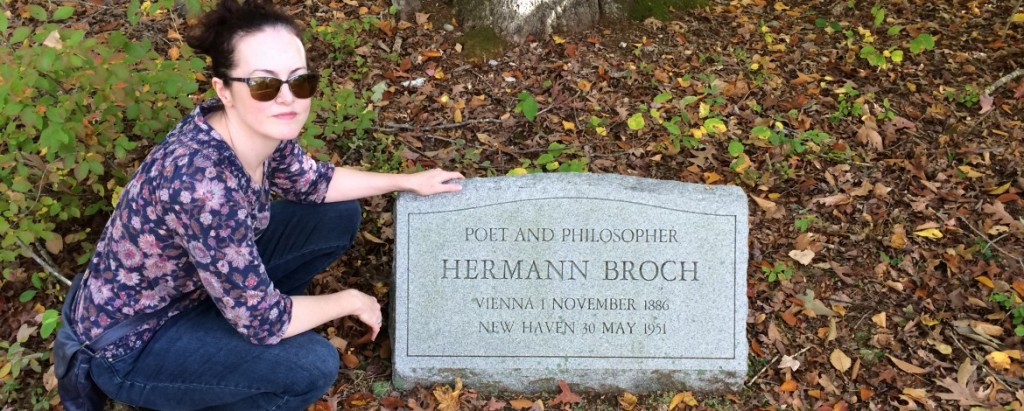
Occasionally, we are fortunate enough to find things that are more exciting than what we are searching for. This is certainly true for Dr. Jen Jenkins, Associate Professor of German in the Languages and Literature Department at Pacific Lutheran University. Dr. Jenkins spent the 2016-2017…
Rediscovery: Dr. Jenkins and the Texts of Hermann Broch Posted by: Matthew / December 4, 2017 Image: Professor Jen Jenkins at the grave of Herman Broch in Connecticut. December 4, 2017 By Clayton Regehr '18PLU HumanitiesOccasionally, we are fortunate enough to find things that are more exciting than what we are searching for. This is certainly true for Dr. Jen Jenkins, Associate Professor of German in the Languages and Literature Department at Pacific Lutheran University.Dr. Jenkins spent the
-
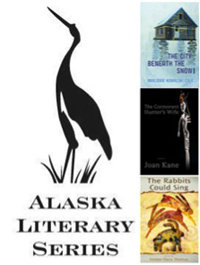
PLU MFA Program presents Alaskan writers at Richard Hugo House Four writers from Alaska, including Peggy Shumaker, the Alaska State Writer Laureate, will read from their new books at 7 p.m., Monday, April 9, at Richard Hugo House : 1634 11th Ave, Seattle, Wash. The event…
and Polar Regions collection and how that work turned into a book of poems. She is the winner of a Rasmuson Foundation grant, and teaches AP English at Lathrop High School. Peggy Shumaker, reading from Marjorie Kowalski Cole’s The City Beneath the Snow Shumaker will give voice to excerpts from Cole’s last book, published posthumously. This final collection of stories from an award-winning writer offers portraits of contemporary Alaskans. Some readers will know Cole’s novel Correcting the Landscape
-
Next of kin: the ethics of eating, capturing, and experimenting on great apes One of the pressing problems of our times is the future of the great apes. All of the great apes – chimpanzees, bonobos, gorillas and orangutans – are endangered. Their habitat is…
in Africa and the conditions faced by captive chimpanzees in the United States. Lindsey reports on her experience last summer in the following way: “As a student of philosophy, I’ve read many of the influential sources of historical and contemporary human arrogance. According to many ancient and modern thinkers, humans are different in kind from all other animals on earth. Along the way we have distinguished ourselves in many ways, not the least of which is the ability to use language. These
-
Spring, 2022 This issue marks an important transition for the Division of Humanities. As of this summer, the Humanities programs —English, Languages & Literatures, the Language Resource Center, the Master of Fine Arts in Creative Writing, the Parkland Literacy Center, Philosophy, and Religion— will merge…
humanities can and should learn from the living presence and complex reality of non-human animals. And the “intellectual and aesthetic transformations” that our teaching makes possible are reflected in the pedagogical insights of professors Jen Jenkins and Kirsten Christensen, who explain their interdisciplinary approach to teaching the literature and cultural history of the German-speaking world. The Energizing Challenge of Diversity In 1993, Dean Paul Menzel noted the division’s concerted efforts to
-
On Exhibit: Common Reading Book 2021, The Best We Could Do The 2021-2022 academic year Common Reading book is the critically acclaimed graphic novel, The Best We Could Do by Thi Bui. In this timely and breathtaking memoir, Bui explores her experiences as a daughter…
the north and the south, and thousands more from Laos and Cambodia. – from https://www.youtube.com/watch?v=7tNTh6KlXXU Art Guggenheim Museum. (n.d.). Danh VO. https://www.guggenheim.org/teaching-materials/teaching-modern-and-contemporary-asian-art/danh-vo-2 See sculptor and installation artist Danh Vo’s Lot 20. Two Kennedy Administration Cabinet Room Chairs which references U.S. involvement in the Vietnam War Danh Vo was born in Bà Rịa, Vietnam, in 1975. His family fled postwar Vietnam when the
-
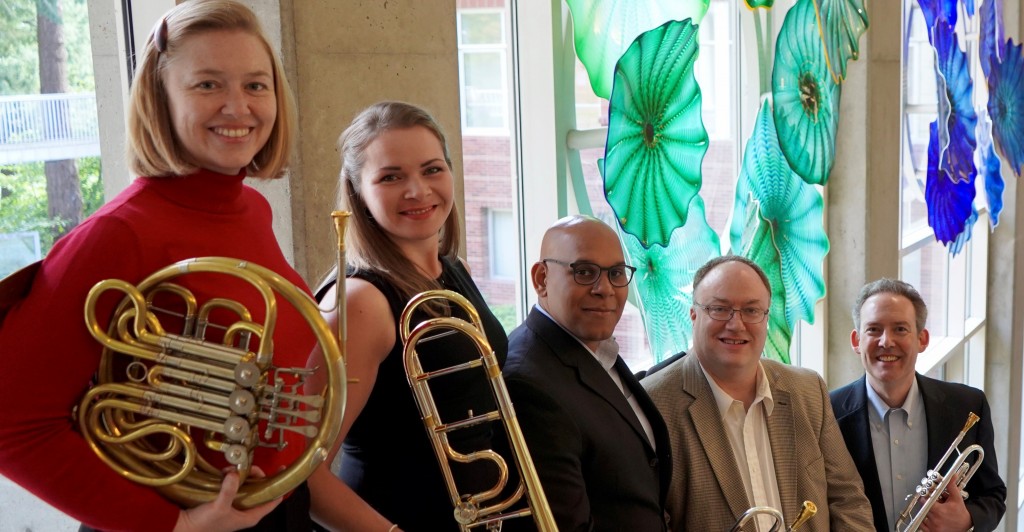
This week we sat down with Dr. Zachary Lyman to talk about everything from recording issues and Bach, to the new Lyric Brass CD and everyone involved in this project. Read on! What can we find in this CD? The CD contains 4 works by…
seven movements and represents a major contribution to modern brass quintet literature. Although Jerry’s work was premiered by a different bass quintet, this CD represents the world premiere recording. How did the opportunity for a CD come about? Dr. Jerry Kracht wrote this piece a year or two ago and sent it to me for possible inclusion on a Lyric Brass recital. We performed LUTHER in its entirety on one of our recitals as part of the 500th Reformation celebration. We thought it was important
-
Former ASPLU VP tagged as Rising Star This November at the NASPA Awards Luncheon, Tamara Power-Drutis ’08 received the Undergraduate Rising Star Award for Region V. The award is given to a undergraduate annually based on service to others, demonstrating outstanding leadership skills, significantly contributing…
the campus culture a positive experience for students and going beyond what other students are contributing on campus. Region V includes chapters from Washington, Oregon, Idaho, Montana, Nevada and Arizona, as well as British Columbia and Alberta, Canada. Power-Drutis was the ASPLU vice president during the ’07-’08 school year. While in that position she led an effort to make PLU a more sustainable and environmentally conscious campus. Read Previous Doing fieldwork is more than just academia Read
-
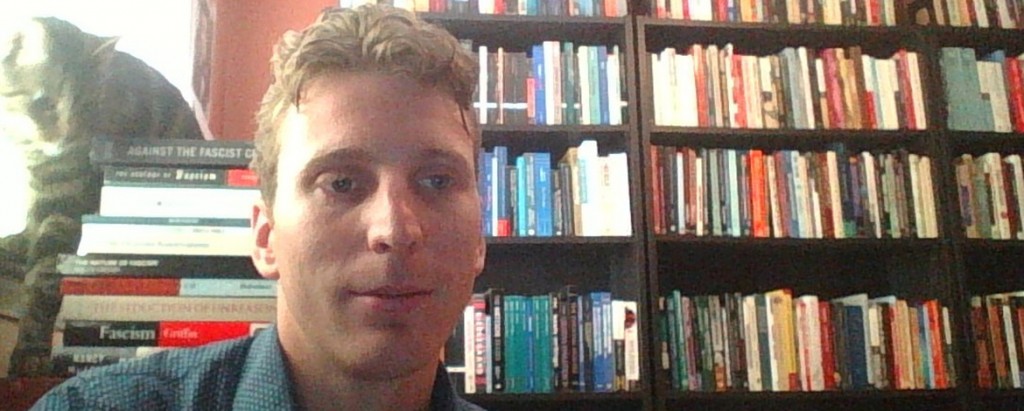
Philosophy professor Adam Arnold is a new addition to PLU’s faculty. Originally from the Tacoma area, he earned a Bachelor of Arts degree from the University of Washington, Tacoma in 2009. From there, he earned the opportunity to study away at Johann Wolfgang Goethe University…
regarding this was, “What makes authority legitimate?” This question he argues, “is highly important for society as it connects to just about every aspect of life.” Currently, Dr. Arnold has four works in progress, one of which is titled “Between You and I: Stephen Darwall and Margaret Gilbert on Promising.” Stephen Darwall is a contemporary moral philosopher, and Margaret Gilbert is a philosopher best known for her work in philosophy of social science. Margaret Gilbert was also one of Dr. Arnold’s
Do you have any feedback for us? If so, feel free to use our Feedback Form.


